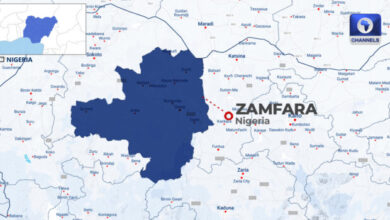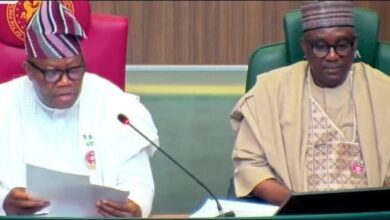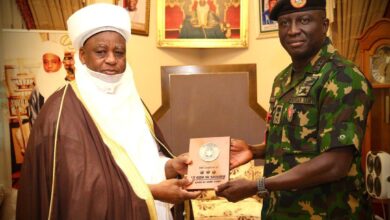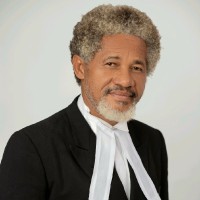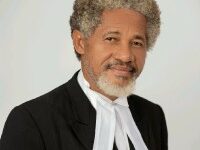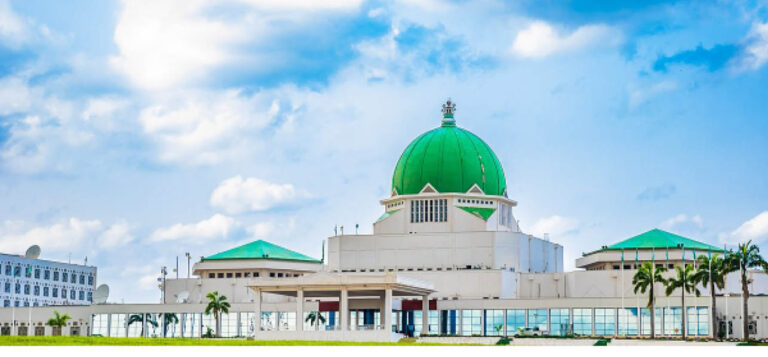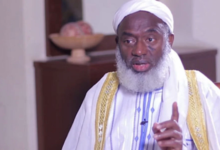At IMF/World Bank meetings, Rafsanjani decries injustice suffered by developing nations, advocates equitable global order
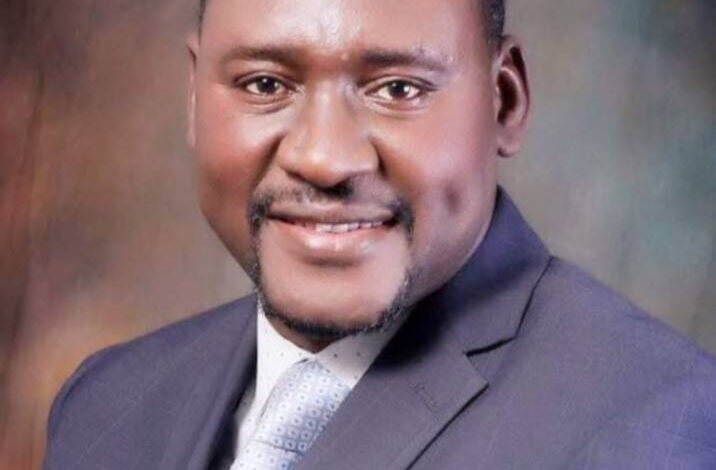
It was an exciting week for the World Bank, the IMF and partners at the just-concluded Annual Meetings in Washington DC. Of course, Nigeria staged an investment road show, important meetings with partners and investors while the non-governmental organisations were also part of crucial sessions and meetings on the sidelines. Auwal Musa Rafsanjani, a Nigerian civil society leader and Executive Director of the Civil Society Legislative Advocacy Centre (CISLAC), also joined the conversation, calling for urgent reforms in global financial governance and Africa’s debt management systems while warning that the continent faces a worsening fiscal crisis which demands urgent action of domestic and international dimensions. OLUFUNKE OLAODE reports
In the case of Africa, in the case of Nigeria, the laboratories are dead, there are no equipped libraries, there is no any proper research that the lecturers are conducting because there are no grants for them to embark on such. So there is no way you can beat the Western world who have prioritised education and provided the enabling environments for education to thrive…
You joined the global conversations which centered on critical areas like debts, tax reforms and of course, Artificial Intelligence. What is your major takeaway from the session?

The major takeaway for me, which is also part of the major conversation around the civil society cycle, is the issues of debts and debt sustainability. This area is very critical because most countries in Africa and Nigeria in particular, are suffering from the burden of debts and spending. And we noted that it is not possible to sustain the kind of debt that Nigeria is taking, given the fact that most of the loans we are taking are not channeled towards real development and investment. They are channelled towards consumption and there is no accountability around those debts. So, the debt profile for Nigeria is worrisome and this applies to many countries in Africa and is of a great concern to all of us that are actually conversing and advocating for more transparency in the debt issue, as well as some of the debts that we believe need to be cancelled because those debts were not actually meant for the good use of the people. So, we have been calling for debt cancellation.
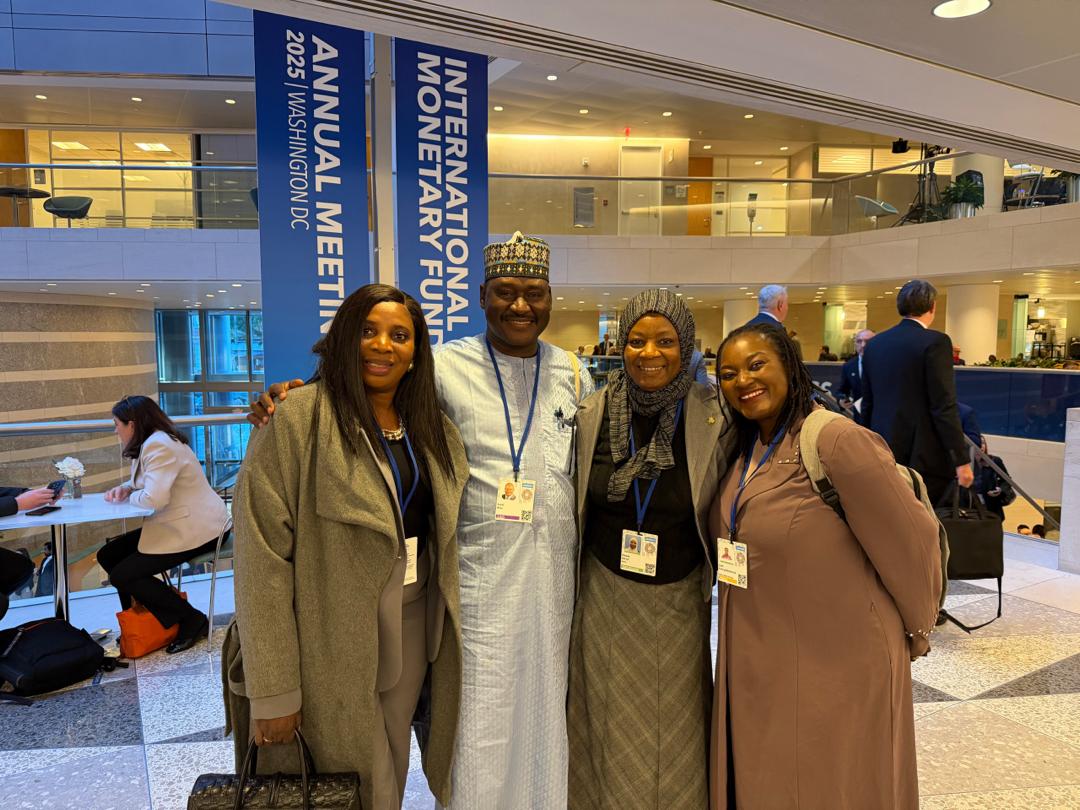
In your own view, how do you think a nation can take care of its needs in the face of the need for massive infrastructural development?
Nigeria is blessed with natural resources; we just need to harness our resources by blocking all wastage and loopholes. As a nation, we do not have to patronise these multilateral organisations through reckless borrowing and that is why we have been telling the IMF and the World Bank that they need to actually begin to review constant requests for loan from African countries. We have also insisted that civil society need to be involved, for proper monitoring of this debt, because shamelessly, even many of our national legislative houses and parliaments across Africa don’t actually know the content or the details of the debts arrangements that the executives of these countries keep piling up. Therefore, they are not able to exercise any oversight on how those loans and debts are being utilised. This is one of the major issues we are concerned with, along with inflation, rising cost of living, because the purchasing power of the people is very poor. Citizens of many countries are so poor that they are unable to take care of basic things. This is worrisome. Many countries in Africa have withdrawn subsidies, meaning no subsidy in the healthcare system, no subsidy in education, no subsidy in transportation facilities or even agriculture. This makes it difficult for people to really survive. And some of the conditions for granting loans are subsidy removal, ironically, countries in the developed world still maintains subsidies for their citizens such as food, transportation, education, agriculture, etc. African nations need to go back to the basics.
A strong economy drives investments, so how would you rate the state of the Nigerian economy and its impact at the moment?
One of the issues with Nigeria is its economy, which has continuously remained monolistic. Many countries around the world have diversified their economies by embracing technology but in Nigeria, we still rely on the oil and gas sector to grow the economy but oil thieves and illegal miners are stifling efforts to reach the sector’s full potential. Honestly, Nigeria has not been able to provide leadership in that direction. Closely linked to that is the fact that investors are unable to come because we do not have the required infrastructure that will truly aid any entity that wants to truly invest in Nigeria. The energy sector is seriously underperforming because we are not able to generate the required electricity, road infrastructure is also very poor. More importantly, security is also a big challenge.
The G-24 came up with this very strong position about the debt crisis affecting most of the developing countries. And the stance is that the debt structure is skewed to a point that it becomes like an entanglement for these economies and there are no exit points. Do you agree with that alignment?
The current debt trap faced by developing nations is structural injustice that perpetuates poverty and dependency. It is true because of the fact that the African countries have refused to block leakages. The illicit financial outflow from Africa is so alarming, so worrisome, as it runs into several billions of dollars annually, which would have been used to develop Africa. There would have been no need for us to be borrowing money if we had blocked leakages. If corruption can be tackled, certainly there will not be a reason for us to constantly come to borrow. Most of Nigeria’s borrowings are being channelled into recurrent expenditure, rather than productive investments that could generate growth, employment, and sustainable development. Most of the loans we take are not for development but for consumption. There is little or no accountability around them, civil society must be involved in monitoring these debts, especially when even lawmakers lack access to full disclosure. It is worrisome to the extent that we are even going to commercial banks to borrow, which ensure higher interests to be paid. So, the G-24 is right because the Africans are the ones who have become very vulnerable to corruption, they have refused to put in place a system that can prevent money laundering, illicit financial outflow, and outright looting in these countries. As a result of this, money meant for infrastructural development, health care, boosting education and supporting small and medium businesses is not there. They constantly rush to borrow but sadly, the funds are not being used to address issues of economic development, or dealing with the poverty, or dealing with the infrastructural deficit. What is always prioritised is wasteful spending. And if you continue with that, you will perpetually continue to borrow, like the case of Nigeria.
You had earlier mentioned the position of the civil society on reforming the IMF and the World Bank and their processes. And it would seem like you are borrowing a leaf from the Spring Meetings, in which the American government came up with a very strong position about these institutions reforming themselves and going back to their original mandates. Are you on the same wavelength with the American government in this regard?
This is the position that civil society had been pushing, both in Africa in general and Nigeria in particular, that there are no transparency and accountable processes in these institutions. And there is no equal representation at that high level in terms of the decision making mechanism. Therefore, there is need to totally, if you like, review the foundation document of why this very important agency or institutions were set up. So, I believe that we need to agree that there’s need for proper reforms where there will be equal opportunity to participate and to contribute to these institutions. As it is now, it belongs to some few countries, and Africans are more of like just coming to endorse and take whatever they are given, peanuts, whereas with the resources that African nations have, look at Nigeria for instance, they should not be involved in this kind of begging lifestyle.
And lastly, in terms of infrastructure, you have also pointed out the need for Nigeria and the rest of Africa to pay attention to Artificial Intelligence, the emerging technology the whole world is tilting towards. And then we find that developing countries are just about 26% in coverage, just as put forward by the IMF, one will begin to wonder if we have the backbone for the infrastructure that will help us leverage on what artificial intelligence is bringing to the global economic space as a country, or perhaps as the Sub-Saharan region?
African nations, and Nigeria in particular, must continue to invest in education, science and technology, because all these developments you see, if you do not have the required knowledge and capacity, you cannot operationalise them. So, it is important that we give priority to issues around quality education, affordable education, accessible education. Because if these citizens are not able to assess or obtain the required knowledge and skill, they will not be able to process any artificial intelligence, which is where the world is moving to. It is important that education is actually properly revived in the country. Sadly, the policy makers in Nigeria have continued to make life, in terms of education, very difficult. I know education is largely inaccessible today, as it is not affordable. Education is being treated with the laxity that you see, no commitment to investing in our higher learning institutions.
The universities don’t undertake researches anymore; there is no laboratory that are actually functional. And around most of the West, they invest a lot in their educational sector, in their universities, every new innovation is coming from the university because of investment in research. In the case of Africa, in the case of Nigeria, the laboratories are dead, there are no equipped libraries, there is no any proper research that the lecturers are conducting because there are no grants for them to embark on such.
So there is no way you can beat the Western world who have prioritised education and provided the enabling environments for education to strive, for knowledge to be developed and utilised so that they can excel in technology, in science, computer science and others. That is how you can only remedy the situation. Secondly, the public officials, the elites in Nigeria and many countries in Africa have decided to send their children to universities abroad, leaving public institutions dead. They need to see what they can do to revive financing of education. That is why we have been talking about financing for development in Nigeria and Africa. CISLAC has been pushing and advocating that we must finance development, effective development for growth and, you know, development in Nigeria. And it is only through that, that you can overcome the challenges you have in the health sector, in agriculture, innovative knowledge that countries invest in. But when you neglect the financing of development to prioritise reckless and irresponsible spending, and also divert money to private accounts, there is no way we can catch up with the rest of the world.


